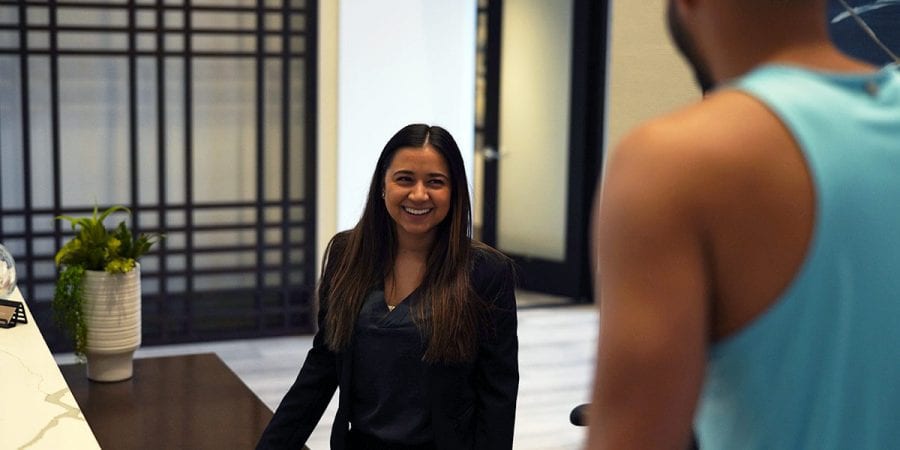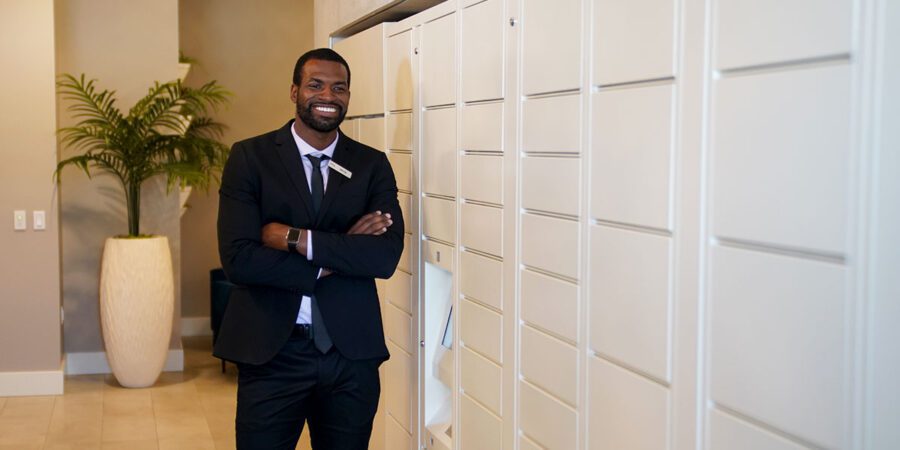
Multifamily
Re-imagining the Resident-Centric Multifamily Industry
Written by: Lori Torres
4 Min Read
Published: March 31, 2021
Updated: September 10, 2021
In less than a year, we have seen a huge shift in the multifamily industry.
What was once an industry heavily contingent upon face-to-face interactions has transformed itself practically overnight into a contactless industry to succeed during the COVID-19 pandemic.
Many communities have made major adjustments to their daily operations in order to enhance the resident experience while also minimizing contact. This includes hosting virtual resident events and requiring reservations for shared amenities.
Not surprisingly, both residents and property managers have eagerly rallied around these contact-free services and amenities, and we anticipate that they will continue to invest in them. Although they may seem expensive or inaccessible at first, some of these tech-savvy solutions will turn out to be important investments in the long-run as the world continues to grapple with the after-effects of the pandemic.
Below, are a few ways that property managers are reimagining the resident-centric multifamily industry:
Creatively Engaging Residents
Property managers understand the importance of engaging and building rapport with residents. That’s why many of them are tapping into the power of technology to host fun virtual events for residents. We’ve seen everything from complimentary virtual yoga sessions to virtual happy hours and even movie and trivia nights.
With Zoom, Google Hangouts, Bizzabo Interact, Facebook Live and more, it is now easier than ever to host community-building virtual events. Additionally, if budget permits, property managers also can treat residents to complimentary gift cards so that they can purchase and bring their favorite beverage or snack to the virtual happy hour as a way to further strengthen relationships with residents.
Another solid idea is to promote virtual resident events via social media. For instance, Bozzuto, a leader in apartment communities and apartment marketing created BozzutoAtHome virtual events, which include lectures, classes, and other events shared live on Facebook and Instagram.
Finally, properties also can design a survey or solicit feedback from residents so that they feel involved in the overall virtual event planning and decision-making process.
Yes, Amenities Can Still be Used
Multifamily communities are being smart and creative when it comes to offering up shared amenities in an effort to keep both current and prospective residents happy and adhere to public health guidelines. Some of the ways they’re doing so include:
- Requiring advanced reservations and/or limited hours of usage for specific amenities, like the swimming pool area, fitness center or dog park. In fact, amenity reservation apps have helped property managers provide safe, continued access to communal amenities.
- Moving some gym equipment outside to allow for better ventilation and proper social distancing between residents.
- Providing spaces for residents to perform app-based exercises (Peloton, Fitbit Coach, etc.).
Social distancing requirements have increased the need for proptech solutions that allow property management companies to offer the same level of resident-centered services without human-to-human contact.
The next step in modern apartment living is offering amenities that balance the need for safety with the demand for premium convenience, entertainment, and wellness options. Expect to see properties invest in premium contact-free amenities, such as keyless entry, amenity schedulers, and smart package lockers to provide added value for current and prospective residents.
Tech-savvy Leasing Solutions
Technology that allows multifamily communities to engage with residents and prospects during the leasing process in a contactless manner is being adopted quickly. Everything from webinars to virtual tours to self-guided unit tours are being implemented right now to minimize face-to-face contact, and we expect these types of contact-free leasing solutions to continue post-COVID.
Another growing trend is the use of property apps that make it easy for residents to schedule and track maintenance, report a problem, or even pay rent. There are dozens of options available including free ones such as Cozy, Rentec Direct, and ResMan. Given the need for continued social distancing in community spaces, fitness areas, or outdoor zones, scheduling becomes easier with an app such as Amenity Boss.
Leveraging Smart Lockers Beyond Package Management
Online shopping has been increasing at an exponential rate due to the COVID-19 pandemic, and over 77% of consumers want their online purchases delivered to their homes. As a result, many multifamily communities have turned to smart lockers to help manage year-round high package volumes.
Smart lockers provide a quick, safe, and contact-free way for residents to retrieve their packages at their convenience. Most automated lockers also allow residents to pick-up their online orders and goods without having to come in contact with a touchscreen or keypad.
However, many property managers are leveraging smart lockers beyond just package management. We’re seeing properties leverage smart lockers to manage paperwork and items for the move-in and move-out experience, as well as maintenance requests. Property managers are placing items such as keys, leases, light bulbs, fixtures, paint, and more inside lockers for residents to pick-up safely and securely at their convenience without having to come in contact with anyone.
As a value-adding amenity, smart lockers are also being used as a new, powerful and impactful marketing tool. Property managers are providing important marketing collateral and even small gifts or prizes to their residents from virtual trivia night, for the holidays, and so much more.
While it may seem daunting to reimagine the deep-rooted resident-centric multifamily industry, I actually think this is a really exciting time for property managers. I encourage them to take this opportunity to think about how they can continue to provide premium, resident-centric services in a more automated and distanced environment.



